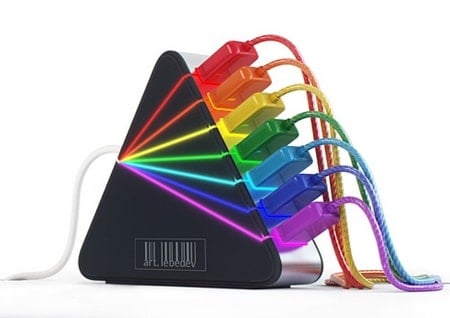Usually, that USB limit is not so friendly. Even though conventional desktop PCs come with a sufficient number of ports for a casual user, in most cases ranging from four to six, laptops or notebooks seem to have clear disadvantages. In order to preserve space so that the end product becomes smaller and more portable, some manufacturers have come up with the brilliant idea of reducing the USB ports number to three or, in some cases, just two. My HP, for example, only has three.
Adding more USB power
Considering some usual cases, when you have to add an external mouse and a cooling stand to a laptop, that leaves only one USB slot remaining for a phone or possibly an additional keyboard. Now, if you were to plug a stick to transfer a movie, something already connected must be pulled out. That’s not so user-friendly. Fortunately, you have the possibility of adding additional USB ports, through several methods:
USB Hubs
Although an USB hub brings solid flexibility options, there are some downsides of the system. First of all, a single USB slot can deliver a certain amount of power. When a splitter is used, this power is entirely transmitted to the external device and then split amongst all given slots. So, if you were to charge four smartphones directly from a hub, they would actually charge four times slower. To avoid this from happening you can opt for a powered USB hub, which comes with an AC charger. They are usually pricier but also more stable. Another recommendation is to avoid chaining two or more USB hubs, pretty much from the same reason described above. If you made up your mind, here’s a short list of our best options:
Belkin High Speed 7 – $28.75 Trip Lite U222-007 – $27.16 Belkin USB 4 Ultra-Mini – $9.02 Satechi 12 Port –$27.99 Anker USB 3.0 – $30
USB Expansion cards
The second variant unfortunately works just for desktop stations and it’s a more reliable option, as well as space-effective one. Through an USB expansion card, users can usually add five or more ports by fitting the board in a free PCI slot on the computer’s motherboard. Besides, by purchasing an evolved USB expansion card filled with USB 3.0 slots users can also enjoy higher transfer speeds. The price for such a unit ranges from $15 to $40, depending on the manufacturer chosen:
Anker Uspeed Superspeed 3.0 with 4 ports – $20 StarTech 7 port – $14.65 IOGEAR 5-Port – $15 Renesas SuperSpeed 3.0 with 2 ports – $20
Check for any spares







